Snap is taking a leaf out of the Asian messaging app playbook as its social messaging service enters a new era.
The company unveiled a series of new strategies that are aimed at breathing fresh life into the service that has been ruthlessly cloned by Facebook across Instagram, WhatsApp and even its primary social network. The result? Snap has consistently lost users since going public in 2017. It managed to stop the rot with a flat Q4, but resting on its laurels isn’t going to bring back the good times.
Snap has taken a three-pronged approach: extending its stories feature (and ads) into third-party apps and building out its camera play with an AR platform, but it is the launch of social games that is the most intriguing. The other moves are logical, and they fall in line with existing Snap strategies, but games is an entirely new category for the company.
It isn’t hard to see where Snap found inspiration for social games — Asian messaging companies have long twinned games and chat — but the U.S. company is applying its own twist to the genre.
Snap is rolling out multiplayer, social games that TechCrunch’s Josh Constine dubbed as “Mario Party-style,” which will exist inside its app for friends to play with each other. Snap is working on content with third-parties as well as its own in-house team, which it got via an acquisition.
The games (and developers) will be supported by advertising, but you’d imagine that there may be an opportunity to add paid-for items for additional revenue further down the line.
From the messaging coming out of Snap’s press event — the Snap Partner Summit in Los Angeles — it looks like Snap is focusing on a young audience with these games, which might explain why it is initially an advertising-based play.
Here’s the money quote from Snap CEO Evan Spiegel:
In the United States, Snapchat now reaches nearly 75 percent of all 13 to 34-year-olds, and we reach 90 percent of 13 to 24-year-olds. In fact, we reach more 13 to 24-year-olds than Facebook or Instagram in the United States, the U.K., France, Canada and Australia.
Social games won’t bring new users to Snap — blockbusters like Fortnite, PUBG or Apex Legends are what moves the market — but they might galvanize existing groups and increase engagement. Ultimately, it really depends on the quality of the titles.
WeChat in China
Snap is inspired by the East, and it can draw on lessons from some of Asia’s most influential chat companies, including the continent’s biggest tech company.
China’s Tencent, a major Snap investor and $450 billion company, is best known for its hugely lucrative games business and its WeChat messaging service that claims more than a billion active users. WeChat is at its cutting-edge best in China where it is called Weixin and it serves as the go-to chat service the mobile internet portal for Chinese consumers. The app can be used for offline payment, food ordering, taxi booking, bill payment and much, much more. It also includes games, which are used by some 400 million users each month, as Tencent revealed in January. That doesn’t include traffic WeChat has sent to Tencent games like Honor of Kings, one of China’s top mobile games, which grossed $2 billion in revenue last year.
However, WeChat isn’t going hard on games at this point, since its new strategy is to own a user’s device via software. It is doubling down on its app store — launched two years ago and used by an estimated 200 million users each month — and developing its own Siri-like concierge. Games have proven to be popular, but Tencent hasn’t rushed to monetize them.
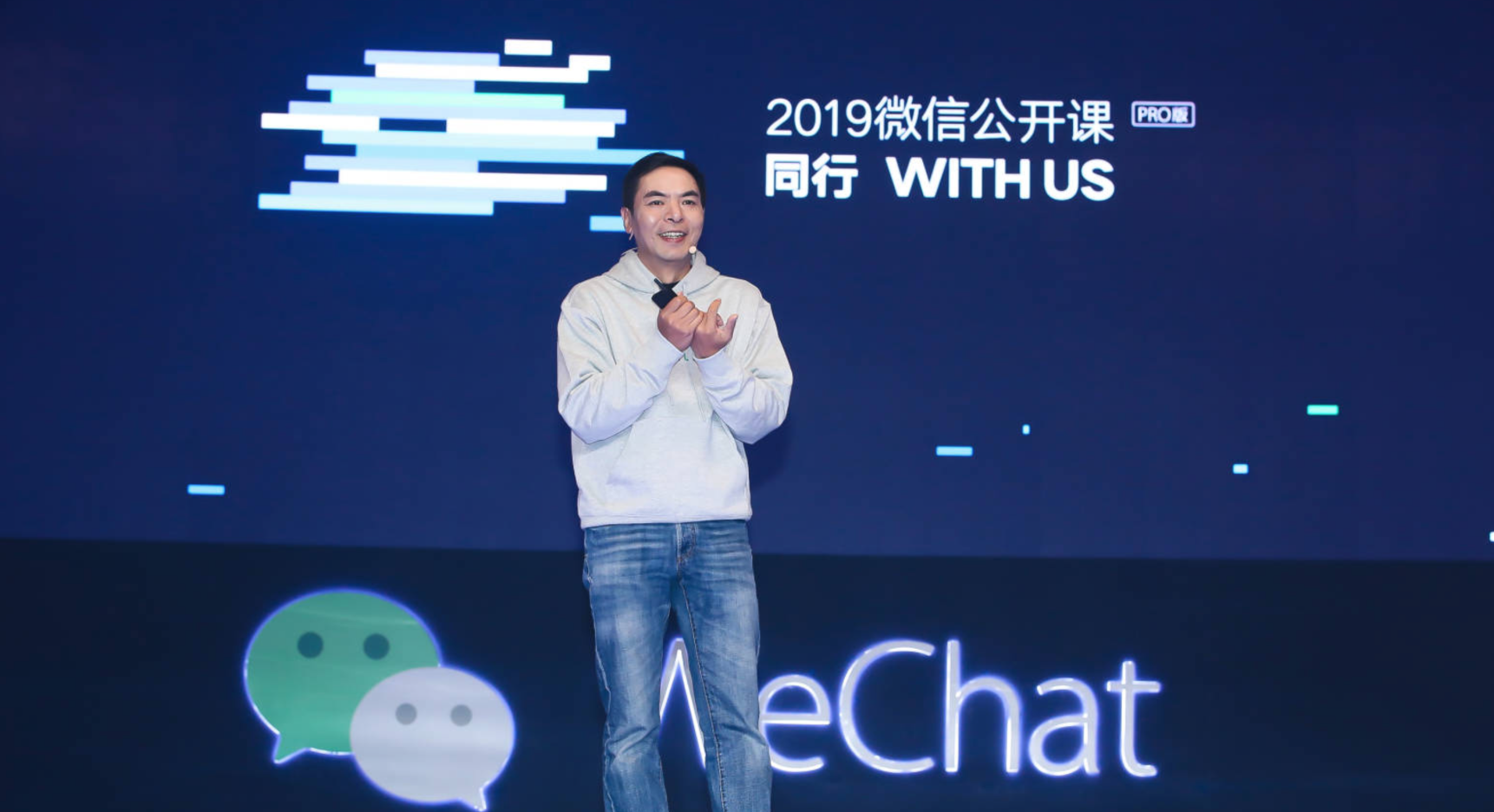
That might be because they are a hit with WeChat’s older user base — 65 million of the app’s monthly users are aged 55 or older — while they are also designed to be light and easy to play unlike more serious titles like Fortnite or PUBG. Tencent is closely aligned with those two blockbuster games, having invested in their development companies, Epic Games and Blue Hole, respectively, and it is interesting to note that it hasn’t sought to bring more advanced titles to WeChat.
Line and Kakao
Another valid comparison for Snap is Line, the Japan-based firm listed on the Tokyo Stock Exchange and NYSE, which has maintained a keen focus on social gaming since being borne out of gaming firm NHN Japan in 2011.
Gaming is in Line’s DNA, and it has always been a key part of its business. The company takes a different approach by producing standalone game apps that hook up to Line’s social graph to allow gamers to log in, find friends, share scores and more. The games all offer virtual items, and when a player buys one, Line takes a cut of the revenue.
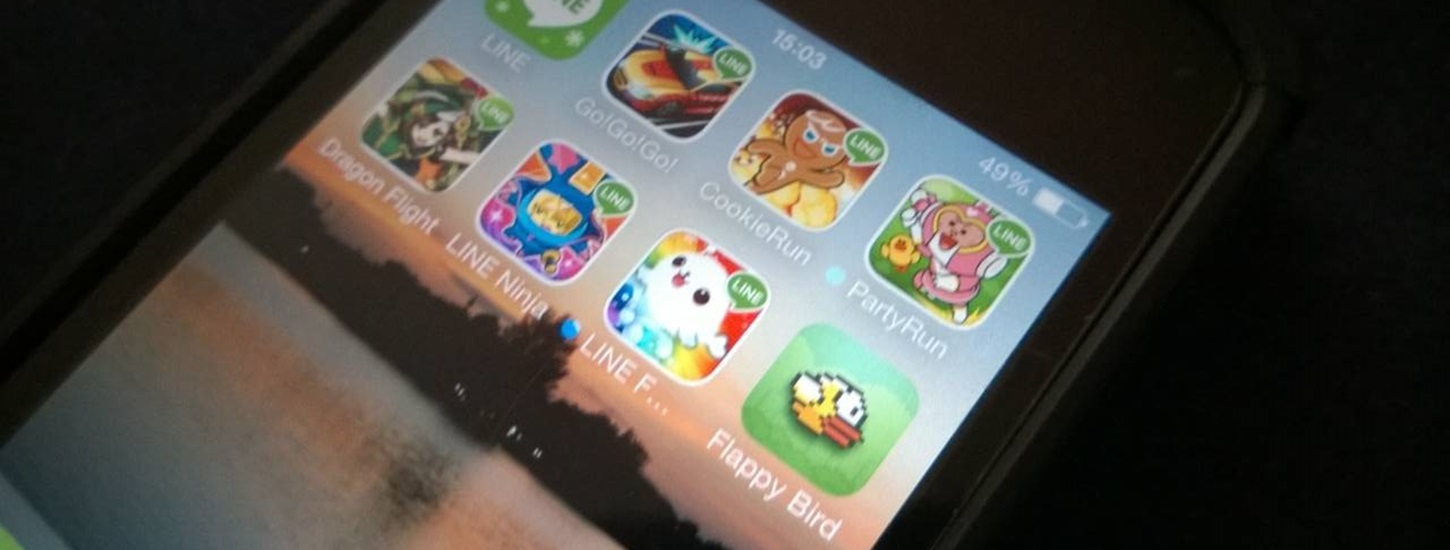
It’s a lucrative model. At the time of its public listing, I wrote that games accounted for more than 40 percent of Line’s revenue, which reached $1 billion for the first time in 2015. Line grossed $1.8 billion in 2018 but it no longer breaks out its gaming-derived revenue, which had traditionally been dominated by users in Japan.
Japan is Line’s largest market, and it accounts for 48 percent of its monthly active users, but its contribution to revenue is an outsized 69 percent. When Line was more transparent about its game-based revenue, it was clear that Japanese users were responsible for nearly 90 percent of game-based income.
Japanese users are always likely to spend, as Japan is the world’s third-largest games market based on revenue, according to Newzoo, but Line hasn’t been able to turn the popularity of its games with overseas users into tangible revenue. For example, Line Play — an emoji-based offering with similarities to Snap’s Bitmoji-based game plan — has clocked more than 30 million registered users, particularly in Southeast Asia, but it isn’t clear how financially successful it has been.
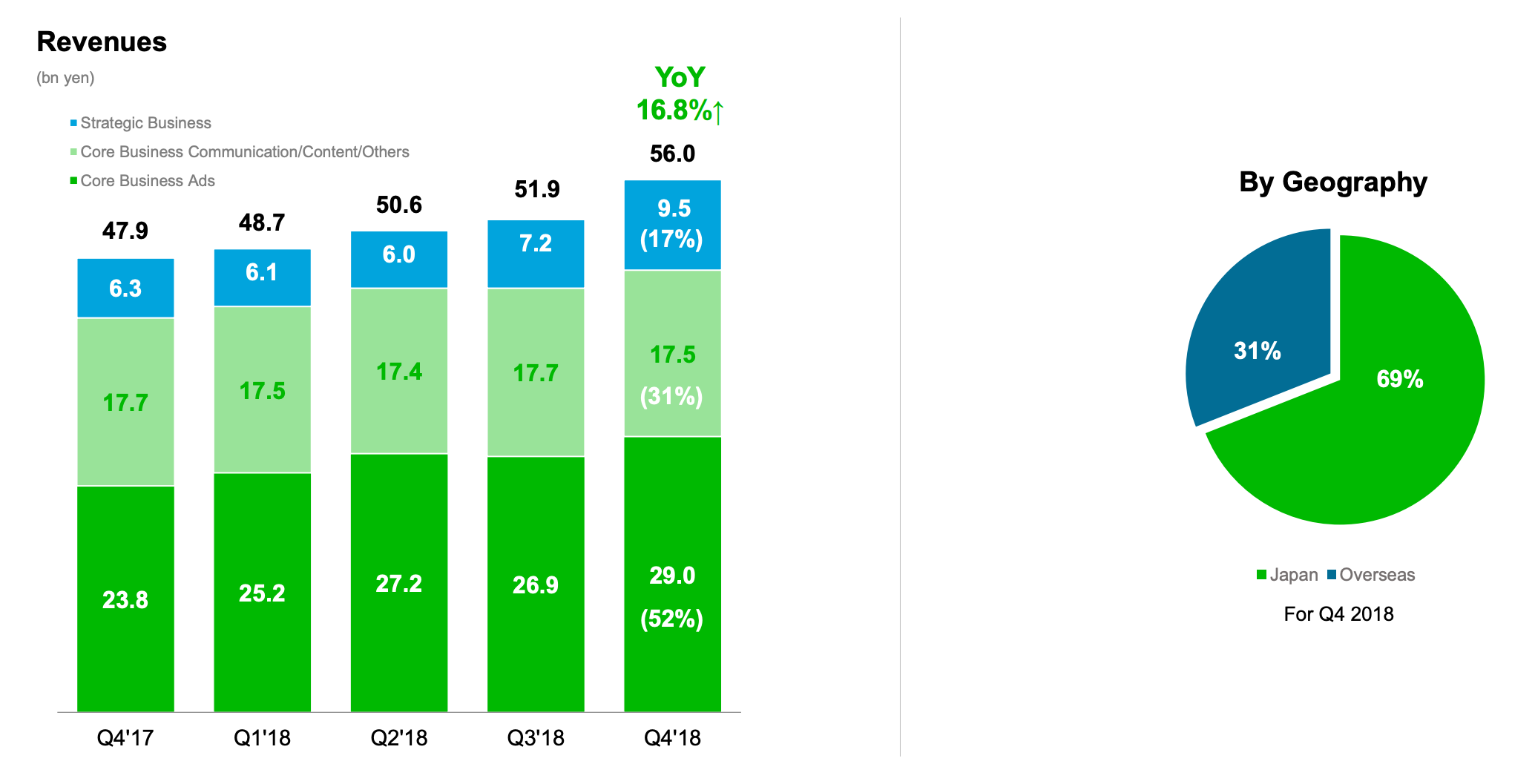
But Line isn’t just about cute, social games. Its game business, which was also acquired via an acquisition, raised $110 million from investors and went independent with a plan to develop IP and titles with global appeal. It’s also slated to include releases on new formats such as the Nintendo Switch.
Line continues to battle the ever-present threat of Facebook Messenger, WhatsApp and others, but in recent years it has pivoted toward additional services that include payments, music streaming, video streaming, anime and more. Line recently added a co-CEO who is tasked with figuring out future strategies to keep it competitive.
Meanwhile, Kakao in Korea — the company that first inspired WeChat — has also long had a presence in games. Like Line, it has fanned out its services to offer features as diverse as fintech, ride hailing and blockchain. Kakao operates its own games division, which includes standalone releases as well as social titles that tie into the messaging app’s social graph.
Tango: Games as a last resort
For Tencent, Line and Kakao, gaming has been nothing but a success. There’s a cautionary example from the U.S: Tango, an early messaging app company, was once valued at $1 billion thanks to a 2014 investment from Alibaba.
Despite a strong launch in 2010, Tango struggled to compete with the likes of WhatsApp, Line, Messenger and others worldwide. In an effort to stand out, it adopted Asia-style e-commerce and gaming strategies, but that wasn’t enough to prop it up. With user numbers plummeting, the company made layoffs (twice), changed its CEO and attempted to simplify its chat service.
Ultimately, none of the spaghetti it threw stuck to the wall and it slowly disappeared from the spotlight. The company has been quiet since 2016, which is when the last entry on its blog was posted.
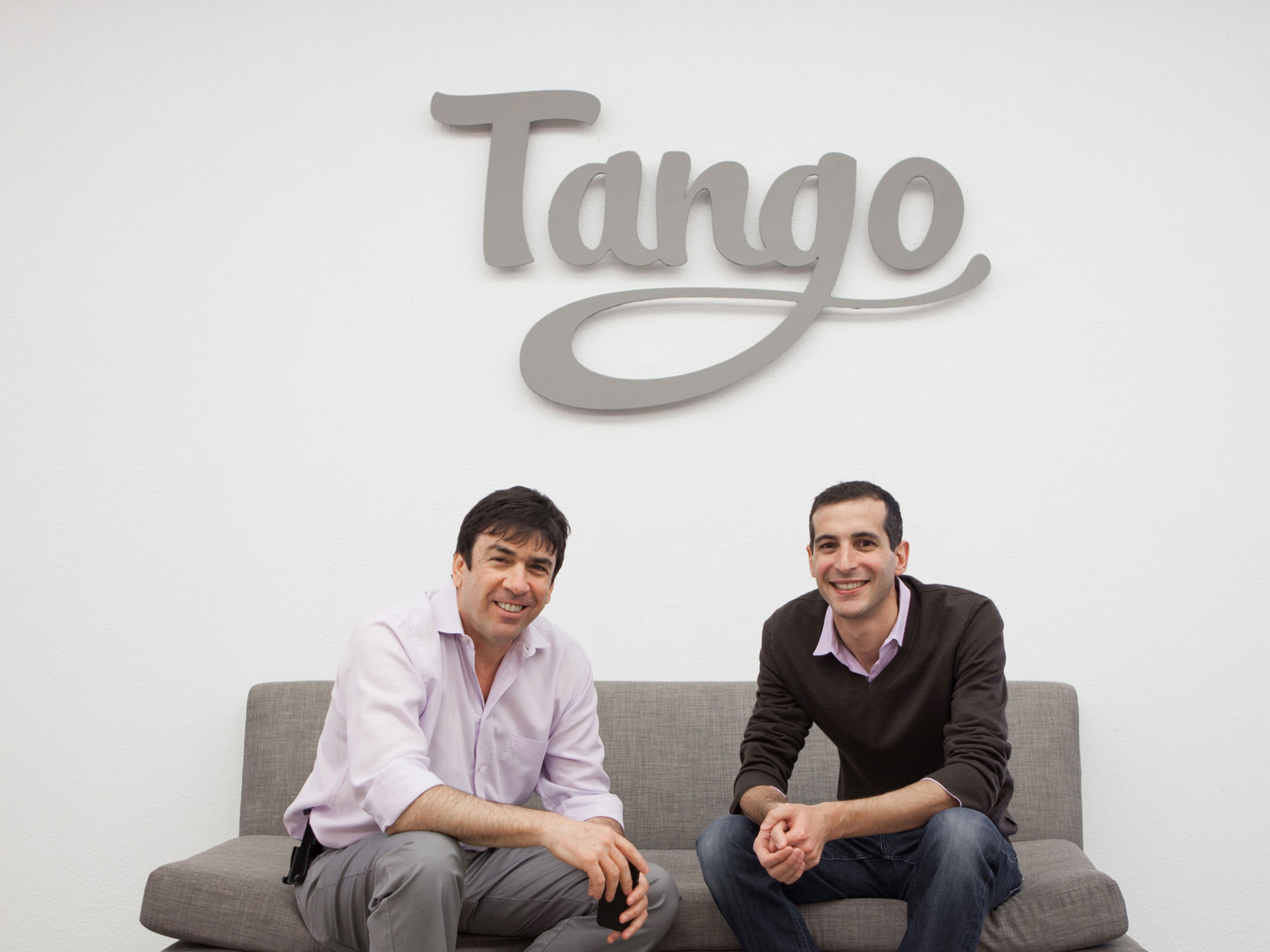
Snap isn’t Tango. Tango never built a brand beyond free calls and messages — an offering that was quickly commoditized — whereas Snap has developed a legitimate audience through a differentiated product. The company is responsible for inventing many of the features that have been the norm in social media today. Snap has that on its side, but it’ll be a challenge to localize in the U.S. market, and to Snap’s young demographic, a concept that has worked overseas.
Still, with the right strategy, Snap might give its Asia-based peers a U.S. example to keep an eye on for insight; it’s been the other way in messaging for many years.
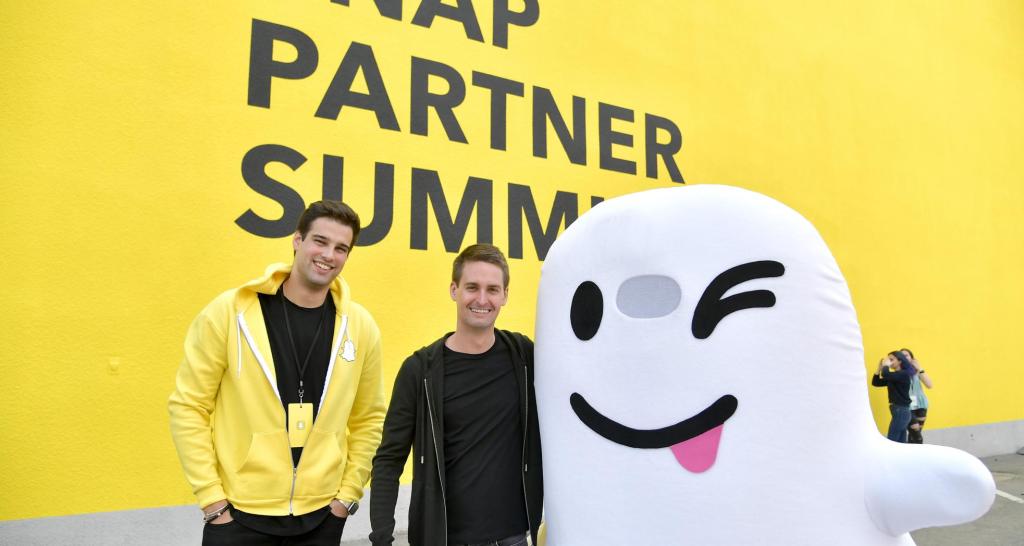




























Comment